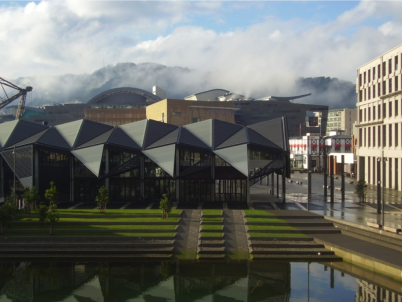We held a seminar with speakers Shaun Awatere and Keriata Stuart. How can kaupapa Māori elements help inform urban planning? What value can these elements add to mainstream urban planning? Can this approach form the basis for effective engagement, inclusion, and capacity building for Māori in urban areas? View the event video.
A number of key elements from kaupapa Māori (Māori ideology) can help inform mainstream urban planning. Kaupapa Māori informed urban design and planning is significant for Māori given that approximately 85% of Māori now lives in urban centres, and present planning rarely reflects and articulates Māori values, aspirations, and goals. The added value from kaupapa Māori informed mainstream planning can be seen in several areas. These include a greater responsiveness to Māori needs, values, and aspirations such as kaitiakitanga (sustainable resource management); a more appropriate practical expression of indigenous rights under The Treaty of Waitangi and relevant legislation; and a greater richness and cultural diversity that result from the expression of Māori cultural forms and elements in urban environments. Elements from kaupapa Māori can complement and enhance existing urban planning and design practices in New Zealand. The speakers will present insights from a range of planning contexts from freshwater, marine and urban environments that show the added value indigenous thinking has to offer New Zealand planning while at the same time meeting the aspirations of iwi/hapū.

Speakers
- Shaun Awatere has worked for many years to promote the incorporation of Mātauranga Māori into everyday practice within local government. His work has influenced in part the way iwi/hapū carry out the business of kaitiakitanga within urban, freshwater, and marine environments. Tangata whenua values are no longer taken for granted by local government or property developers; they are now actively applied in housing developments, local government freshwater management plans and marine spatial plans.
- Keriata Stuart (Te Atiawa, Taranaki) is an independent Māori qualitative researcher with a wide range of experience and interests focused around Māori wellbeing and the settings – places, communities, political and organisational structures – that affect that wellbeing. She has worked as a researcher and policy advisor for government, research institutes and non-government organisations.
This seminar took place on Wednesday 27 September 2017 at City Gallery, 101 Wakefield St, Wellington.